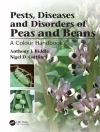Sustainability has a major part to play in the global challenge of continued development of regions, countries, and continents all around the World and biological nitrogen fixation has a key role in this process. This volume begins with chapters specifically addressing crops of major global importance, such as soybeans, rice, and sugar cane. It continues with a second important focus, agroforestry, and describes the use and promise of both legume trees with their rhizobial symbionts and other nitrogen-fixing trees with their actinorhizal colonization. An over-arching theme of all chapters is the interaction of the plants and trees with microbes and this theme allows other aspects of soil microbiology, such as interactions with arbuscular mycorrhizal fungi and the impact of soil-stress factors on biological nitrogen fixation, to be addressed. Furthermore, a link to basic science occurs through the inclusion of chapters describing the biogeochemically important nitrogen cycle and its key relationships among nitrogen fixation, nitrification, and denitrification. The volume then provides an up-to-date view of the production of microbial inocula, especially those for legume crops.
Cuprins
Production and Biological Nitrogen Fixation of Tropical Legumes.- Nitrogen Fixation by Soybean in North America.- The Importance of Nitrogen Fixation to Soybean Cropping in South America.- Production, Regional Distribution of Cultivars, and Agricultural Aspects of Soybean in India.- Soybean Cultivation and BBF in China.- Soil Stress Factors Influencing Symbiotic Nitrogen Fixation.- Nodulated Legume Trees.- Nitrogen-Fixing Trees with Actinorhiza in Forestry and Agroforestry.- Molecular Ecology of N2-Fixing Microbes Associated with Gramineous Plants: Hidden Activities of Unknown Bacteria.- Interactions of Arbuscular Mycorrhiza and Nitrogen-Fixing Symbiosis in Sustainable Agriculture.- Inoculant Preparation, Production and Application.- Nitrifying Bacteria.- The Nitrogen Cycle: Denitrification and its Relationship to N2 Fixation.












